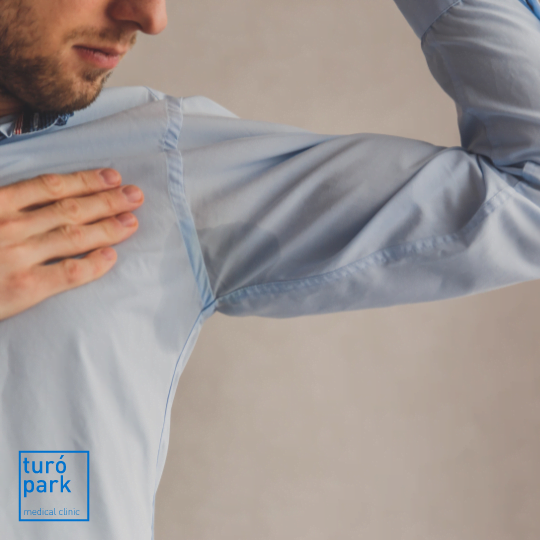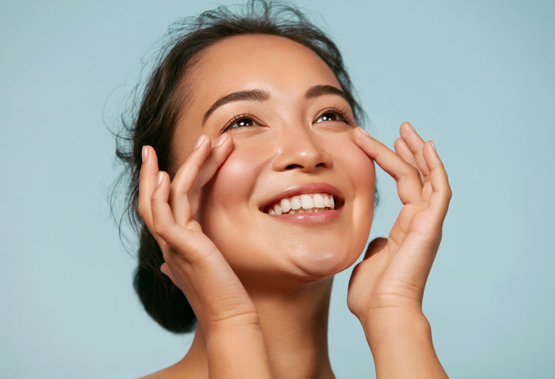Do you sweat excessively and want a specialist treatment in Barcelona?
Excessive sweating, otherwise known as hyperhidrosis, is an abnormal production of sweat mainly in the armpits, palms and soles of the feet. Although hyperhidrosis does not have serious physical health consequences, it can be a nuisance in everyday life and promotes the development of skin diseases such as fungus and warts.
If you are looking for a solution to stop your excessive sweating, don't hesitate to make an appointment with one of our dermatologists now. After a diagnosis, they will propose a solution adapted to your needs and expectations.
What is sweating?
Perspiration is a natural process and it is essential to the proper functioning of the human body. It plays a fundamental role in thermoregulation and helps maintain skin hydration.
Sweat is produced by the sweat glands in the dermis (especially on the palms, soles, armpits, genital area, forehead and cheeks), the deepest layer of the skin, and is 99% water.
Normally, the body produces about 0.5L of odourless sweat per day, but under the influence of heat, emotions or physical exercise, the body can generate up to 10L of sweat.
Fast track your treatment
To book an appointment or speak with one of our friendly team, please get in touch using the options below.

When is it diagnosed as hyperhidrosis?
Excessive sweating is said to occur when it becomes unpleasant for the patient. This sweating can be localised (hands, armpits, feet, face, etc.) or generalised, affecting the whole body.
If you think you are suffering from hyperhidrosis, here are a few signs that can help you to identify it:
- Excessive sweating, requiring showers and/or changes of clothing several times a day, even in winter;
- Hands that get wet easily, making it difficult to hold a steering wheel, work on a computer, use tools or shake hands with someone else;
- The body sweats so much that the person is afraid to play sports or dance.
Typically, excessive sweating develops in late childhood and peaks during puberty, then tends to subside after the age of 40. It may also reappear at the time of the menopause.
What causes excessive sweating?
Excessive sweating, especially when it is generalised, is often a side effect of a pathology or other disorder such as:
- Menopause
- A thyroid problem
- Lymphoma
- Tuberculosis
- The side effect of certain antidepressants (e.g. desipramine and nortriptyline)
- The side effect of breast cancer treatment
It has been highlighted that 25% of sufferers often have a family history of hyperhidrosis, suggesting that hypersudation is hereditary.
On the other hand, certain factors tend to increase sweat secretion, such as:
- Stress
- Strong emotions
- Hot weather
- Consumption of alcohol or spicy food
- Physical exertion
In all the case that you are worried about your sweating, we advise you to make an appointment with a doctor if you wish to know the cause of your hypersudation and treat it.
We take care of your skin.
Our dermatologists welcome you for personalized care of all your skin, hair and nail problems.

What are the treatments for hyperhidrosis?
If you sweat excessively, your dermatologist can prescribe various types of treatment.
This treatment consists of immersing the hands and feet in a container of water in which a low density electric current is passed. In general, about ten sessions of 20 minutes each are necessary to obtain a satisfactory result.
Iontophoresis is not permitted in pacemaker wearers and is avoided in people with metal prostheses and pregnant women.
Our English-speaking dermatologists


